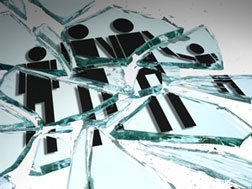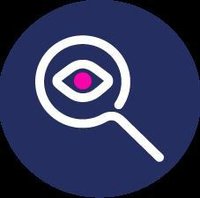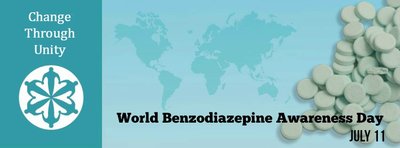Effects on Us All
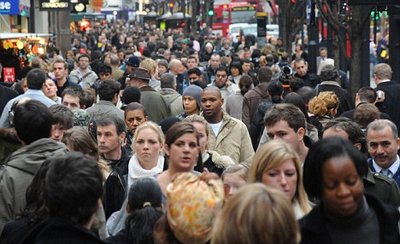
Doctor induced prescription benzodiazepine dependency is a worldwide problem that affects all of us in one way or another. You should read this section.
These drugs are prescribed for a wide range of ailments including anxiety, insomnia, muscle stiffness, chronic pain etc.
Throughout the world, people have unwittingly been subjected to doctor induced dependency (iatrogenic injury / damages) through seeking help for such trivial complaints as dental pain, period pain, sporting injuries, school examination stress etc. (Look no further than Ray Nimmo's story – founder of benzo.org.uk).
As indicated by Prof. Heather Ashton, if improperly managed and/or unwittingly subjected to, these highly addictive drugs have the potential to cause serious damage to our mental and physical wellbeing, our families, our work, and cause an array of other socioeconomic problems.
This is happening on a large scale!
Top of Page
- Increased risk of accidents - traffic, home, work.
- Increased risk of fatality from overdose if combined with other drugs.
- Increased risk of attempted suicide, especially in depression.
- Increased risk of aggressive behaviour and assault.
- Increased risk of shoplifting and other antisocial acts.
- Contributions to marital/domestic disharmony and breakdown due to emotional and cognitive impairment.
- Contributions to job loss, unemployment, loss of work through illness.
- Cost of hospital investigations/consultations/admissions.
- Adverse effects in pregnancy and in the new-born.
- Dependence and abuse potential (therapeutic and recreational).
- Costs of drug prescriptions.
- Costs of litigation.
Top of Page
Alarming increases in the prescribing of psychotropic drugs to children
In my search to find a suitable video for this section, I was alarmed at what I found both on YouTube and on the internet in general. It appears so many kids are being needlessly labeled with diagnostic names before being prescribed all sorts of psychotropic (mind altering) drugs. As for the risks I suggest you simply search the words “Children, psychotropic drugs” etc. on YouTube and/or the internet in general and see for yourself.
Related News Articles:
- Anti-depressant paroxetine linked to youth suicide and no more effective than a placebo, researchers find, ABC News, September17, 2015.
- SPECIAL REPORT: Why are children being prescribed more psychiatric and serious medications than ever?, Fox News, 15 May, 2015.
- Why Are So Many Toddlers Taking Psychiatric Drugs?, The Wall Street Journal, February 19, 2015.
- 30% of doctors give psychotropics to tots, The Japan Times, March 11, 2011.
Top of Page
“Benzodiazepines cross the placenta, and if taken regularly by the mother in late pregnancy, even in therapeutic doses, can cause neonatal complications. The foetus and neonate metabolise benzodiazepines very slowly, and appreciable concentrations may persist in the infant up to two weeks after birth, resulting in the "floppy infant syndrome" of lax muscles, oversedation, and failure to suckle. Withdrawal symptoms may develop after about two weeks with hyperexcitability, high-pitched crying and feeding difficulties.
Chronic maternal use may impair foetal intrauterine growth and retard brain development. There is increasing concern that such children in later life may be prone to attention deficit disorder, hyperactivity, learning difficulties, and a spectrum of autistic disorders." Professor Heather Ashton: Emeritus Professor of Clinical Psychopharmacology, University of Newcastle upon Tyne, England.
The below CNN clip highlights some of the serious effects of prescription drugs on babies (Although this clip is available in English only, the scenes themselves transcend all languages)
Although the above clip focuses on pain killers (opioids), benzodiazepines also cross the placenta, and being as highly addictive as they are, can also produce serious withdrawal effects. These problems have become so common that it now has a name “Neonatal Abstinence Syndrome” (NAS). The scenes of medical staff employing the use of morphine to help ease the pain and control the withdrawal symptoms may be shocking and controversial, but the question has to be asked, how are these problems occurring in the first place?
Unfortunately, like in many other of these news clips, the blame is often shifted quickly towards individual mothers making reference to the term “abuse”. However, the reality is that other far more significant contributing factors (working behind the scenes) are often overlooked such as the prescribing doctors, the drug companies, government agencies / policies etc…. Clearly the pregnant mothers didn’t just pick these drugs of a tree….
The fact is, in many cases, people did not “abuse” drugs; they were simply following their doctor’s advice. For these people (who followed their doctor’s advice) to then suffer an involuntary dependency, and the consequences of that doctor induced injury, only to later be labelled an “abuser” is nothing less than despicable!
What are the prescribing doctors thinking? What influences do drug companies have? Are current government policies adequate enough? (See Who’s Responsible below).
Top of Page
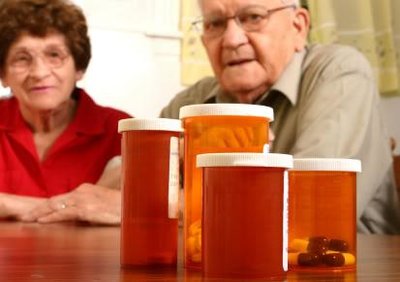
Older people are more sensitive than younger people to the central nervous system depressant effects of benzodiazepines. Benzodiazepines can cause confusion, night wandering, amnesia, ataxia (loss of balance), hangover effects and "pseudodementia" (sometimes wrongly attributed to Alzheimer’s disease) in the elderly and should be avoided wherever possible.
Oversedation persists longer and is more marked in the elderly and may contribute to falls and fractures. Acute confusional states have occurred in the elderly even after small doses of benzodiazepines.
Consider this:
The elderly are susceptible to not only the adverse effects of drugs, but also to being prescribed them – they can be like sitting ducks for potential drug sales (people with plenty of left over money whose decision making abilities are dwindling). Rest homes can provide the perfect duck ponds. Have you checked on you elderly parents / grandparents recently…?
Related News Articles:
- Over-prescribing psychoactive medications to our seniors is a serious problem and a substantive public health concern, Kings Country News, April 5, 2016.
- Seniors are given so many drugs, it’s madness, The Globe and Mail, March 8, 2016.
- Doctors prescribe too many sleeping pills to elderly, UN report says, Daily Sabah, March 2, 2016.
- Still Mistreating the Elderly with Psychiatric Drugs: Benzodiazepines, Mad in America, October 28, 2015.
Top of Page
When we see unthinkable crimes on TV, we often think “He/she must have been crazy!” Drug dependency experts often ask “I wonder what drugs they were being prescribed...?” Prescription drugs are often linked with violence and crime.

The next time you see an unexplainable crime on TV, it would be realistic to ask yourself, “Is it possible that he/she was being prescribed mind altering drugs...?”
Top of Page
Also consider:
- Nearly Every Mass Shooting In The Last 20 Years Shares One Thing In Common, and It’s NOT Weapons, Ammoland News, April 1, 2013.
- Germanwings crash pilot Andreas Lubitz lied to doctors about flying and was prescribed powerful drugs, Daily Telegraph, April 2, 2015.
- Winging It: Antidepressants and Plane Crashes, Prof. David Healy, March 30, 2015.
- Pilots and Antidepressants, RxISK, March 30, 2015.
Top of Page
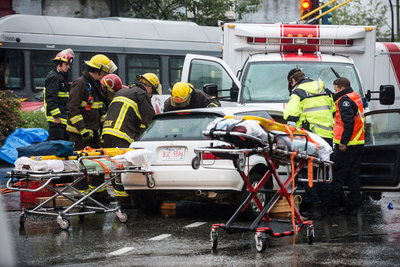
(Imagery only)
Benzodiazepines slow down reaction times, cloud judgement, cause cognitive impairment and drowsiness, so it’s little wonder they cause accidents. Yet, unlike alcohol, there are no driving restrictions, and when related accidents occur, unlike alcohol or illegal drugs, the media hardly ever make any reference to the affects of these potentially lethal prescription drugs.
Top of Page
Psychotropic drugs (drugs that affect the mind) such as anti-anxiety, antidepressants, antipsychotics, pain killers (opioids) etc. can sometimes lead to death; either directly or indirectly through accidents etc.

Related News Articles:
- Pharmaceutical drugs driving rise in Victorian overdose deaths, The Guardian, April 5, 2016.
- Benzodiazepine prescriptions, overdose deaths on the rise in U.S., Reuters, February 26, 2016.
- EXCLUSIVE: How Big Pharma greed is killing tens of thousands around the world: Patients are over-medicated and often given profitable drugs with ‘little proven benefits,’ leading doctors warn (Queen's former doctor, Sir Richard Thompson, has backed new campaign), Daily Mail, February 23, 2016.
- Overdoses on anti-anxiety meds such Valium and Xanax are on the rise, The Washington Post, February 22, 2016.
- Benzodiazepine overdose deaths soared in recent years, study finds, CNN, February 18, 2016.
- Benzos killed more Mainers than heroin in 2014, ABC News, February 18, 2016.
- Benzodiazepine overdose deaths soar, CBS, February 18, 2016.
- Benzodiazepines are the most common prescription drug involved in Rhode Island overdose deaths, Providence Journal, January 19, 2016.
- Increasing Benzodiazepine Prescriptions and Overdose Mortality in the United States, 1996–2013, American Public Health Association, December 17, 2015.
- Prescription pills are Britain’s third biggest killer: Side-effects of drugs taken for insomnia and anxiety kill thousands, Daily Mail, September 15, 2015.
- Prescription drug deaths in Victoria eclipse road fatalities, The Age, March 21, 2015.
- It's remarkable that nobody raises an eyebrow when we kill so many of our own citizens with drugs..., The Sydney Morning Herald, February 7, 2015.
- Legal drugs cause 75% of poisoning deaths, Irish Examiner, December 16, 2014.
- Benzodiazepine drugs accounted for more deaths than ALL the so-called hard drugs put together, Mad in America / Barry Haslam, April 26, 2014.
- Medicines killing hundreds, The Age, April 9, 2014.
- Sleeping pills 'linked to increased death risk', BBC News, February 28, 2012 (Interviews).
Top of Page
How Many Celebrities Lost?
Journalists have regularly exposed the Benzodiazepine Scandal with stories of celebrity deaths associated with benzo use as well as the blighted lives of ordinary people.
Benzodiazepines were, by all accounts, implicated in the deaths of:
Prince, Michael Jackson, Whitney Houston, Heath Ledger, Brittany Murphy, Amy Winehouse, Elvis Presley, Paula Yates, DJ AM (a.k.a. Adam Goldstein), Anna Nicole Smith, Margaux Hemingway, Don Simpson, David Foster Wallace, Chris Cornell, Tom Petty, and the list continues to grow...
According to this news clip, Michael Jackson was being co-prescribed numerous drugs including 3 different benzodiazepines, one of which (Lorazepam) was stated as being the co-contributor to his death along with acute Propofol intoxication.
Consider this article from thestar.com: How anti-anxiety meds are killing celebrities - It used to be that hard drugs were the cause of celebrity overdoses…Of the celebrities who have overdosed on drugs in the past five years, eight appear to have taken prescription medications — specifically, a mix involving easily accessible anti-anxiety medications known as benzodiazepines or “benzos.”
Top of Page
Increased risk of suicide

"Depression can be a real problem in withdrawal and can sometimes be severe enough to pose a risk of suicide.
In 1988 the Committee on Safety of Medicines in the UK recommended that "benzodiazepines should not be used alone to treat depression or anxiety associated with depression. Suicide may be precipitated in such patients".
Depressive symptoms are common both during long-term benzodiazepine use and in withdrawal. It is not surprising that some patients feel depressed considering the amalgam of other psychological and physical symptoms that may assail them. Sometimes the depression becomes severe enough to qualify as a "major depressive disorder", to use the psychiatric term. This disorder includes the risk of suicide.
Suicides have occurred in several reported clinical trials of benzodiazepine withdrawal."
(Source: The Ashton Manual)
Related News Articles:
- Antidepressants can raise the risk of suicide, biggest ever review finds, The Telegraph, January 27, 2016.
- Anti-depressant paroxetine linked to youth suicide and no more effective than a placebo, researchers find, ABC News, September17, 2015.
- An Irish Epidemic: Suicide and Homicide on Antidepressants, RxISK, March 17, 2015.
- The Suicide of Robin Williams, Global Research, August 25, 2014.
Top of Page
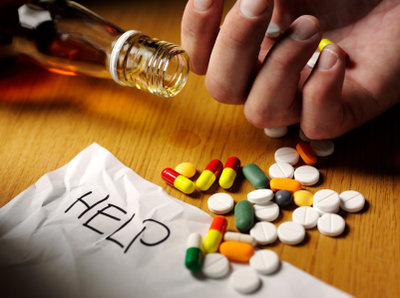
Doctors creating so-called "drug abusers"?
In some cases, doctors overprescribing these kinds of drugs can form a gateway to actual abuse with serious implications (See documentaries).
Related News Articles:
- Unintended consequences: Why painkiller addicts turn to heroin, CNN, January 3, 2015.
Top of Page
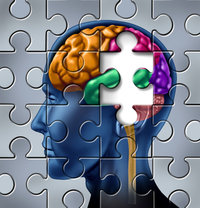
Recent studies associate prolonged BZ use with irreversible damages. (Also see The Ashton Manual Supplement).
Related News Articles:
- EXCLUSIVE: How Big Pharma greed is killing tens of thousands around the world: Patients are over-medicated and often given profitable drugs with ‘little proven benefits,’ leading doctors warn (Queen's former doctor, Sir Richard Thompson, has backed new campaign), Daily Mail, February 23, 2016.
- Benzodiazepines do patients more harm than good, Every Woman, September 15, 2015.
- Sleeping pills TREBLE the risk of lung cancer: Common drugs including Xanax and Valium trigger ‘worrying’ rates of disease, Daily Mail, June 18, 2015.
- Sleeping pills taken by millions linked to Alzheimer's, Daily Telegraph, September 10, 2014.
- Benzodiazepines treat anxiety, cause long-term problems, The Bulletin, June 1, 2014.
- Xanax-related ER visits double in 6 years, CNN, May 22, 2014.
- Benzodiazepines treat anxiety, cause long-term problems, The Bulletin, June 1, 2014.
- Brain Damage from Benzodiazepines: The Troubling Facts, Risks, and History of Minor Tranquilizers, Psychology Today, November 18, 2010.
- Drugs linked to brain damage 30 years ago, The Independent, November 7, 2010.
Top of Page
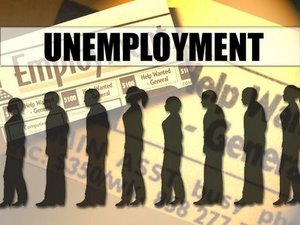
Doctor induced benzodiazepine dependency (iatrogenic damages) and withdrawal can be totally disabling and can take many years to recover from. Many perfectly good workers are being rendered incapacitated and become reliant on the system for benefits. For me personally, I was on a sickness benefit for more than a year following withdrawal and I know of people who have been on benefits for many-many years for this reason.
Consider this:
“Benzodiazepine withdrawal is a severe illness. The patients were usually frightened, often in intense pain, and genuinely prostrated. The severity and duration of the illness are easily underestimated by medical and nursing staff, who tend to dismiss the symptoms as ‘neurotic.’ In fact, through no fault of their own, the patients suffer considerable physical as well as mental distress.”
(See Benzodiazepine Withdrawal: An Unfinished Story. Prof. C. H. Ashton. 1984).
Top of Page
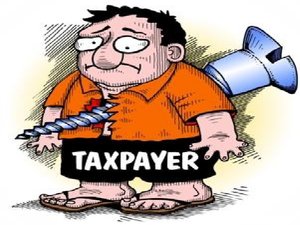
Hey you – the taxpayer. Yes, you – the hard worker in the street. Who do you think’s picking up the bill for all this mess and the massive costs to society while the drug companies continue to make greedy, oversized profits?
Is it acceptable?
Top of Page
The excerpt from the documentary above shows views of prescribers, experts and patients with regards to benzodiazepines and other psychotropic drugs.
It touches on differences over interpretations (addiction / dependence) and despite differing opinions, reaffirms that benzodiazepines are one of the most difficult drugs to withdraw from.
It also shows the all too familiar scenario of doctors getting it wrong when it comes to recognizing withdrawal syndrome, and instead blaming this problem that they themselves created on the patient, before proceeding to prescribe yet more drugs.
Top of Page
Unlike illegal drugs, the media tend not to make associations between prescription drugs and accidents, but here are a few:
- Drug cocktail allegedly in man's system when he hit, killed teen, The Journal Times, January 19, 2016.
- Germanwings crash pilot Andreas Lubitz ‘lied to doctors about flying and was prescribed powerful drugs’, Daily Telegraph, April 2, 2015.
- Winging It: Antidepressants and Plane Crashes, Dr. David Healy, March 30, 2015.
- Pilots and Antidepressants, RxISK, March 30, 2015.
- Experts warn of spike in number of sudden or accidental deaths involving Xanax, ABC News, June 25, 2014.
Top of Page
Just as Japanese fisherman lure dolphins into the cove at Taiji in Wakayama ready for the mass kill, it seems the drug companies work in a similar fashion; firstly seducing the doctors, then luring the public into the hospitals and clinics through advertising, which is now everywhere, including many major websites, with many medical programs on TV being sponsored by the drug companies. Some countries even allow children to be used for the purpose of pushing drug sales.
Children in Drug Advertising?
The tune is very catchy too, so no doubt people go away with the words, and subsequently, subconscious thoughts of drugs rolling through their heads all day, without so much as a second thought due to the portrayal of innocence... (the power of advertising)
Question:
Is it natural for a young girl of about five years of age to be skipping down the street singing: “Nippon Chemi-pha (Nippon Chemical pharmaceuticals)...?”
The part at the end can be interpreted as: “Don’t bother asking questions, just take the stuff...”
Don’t governments set ethical standards for advertising, or are they just interested in the money?
Other examples:
- Young girl holding up sign saying, “Give me generic drugs...” Father says, “She learns from me...”
- Young girl, all but three years old, asking everyone and everything, “If it’s generic drugs you’re after...?” and they all reply, “Nippon Chemi-pha (Nippon Chemical Pharmaceuticals)...”
- Young girl, all but four years old, apparently conducted research into generic drugs and is now informing her young classmates about how cheap they are...
- Young doctor, about 5 years of age, recommending generic drugs.
- Young Japanese girl teaching her young foreign friend how to write in Japanese. Oh, and out of the thousands of characters that exist in the language, she just happened to choose the ones for pharmaceuticals... But, surprise-surprise, her friend already knew the name...
Top of Page

The Queen’s former doctor, Sir Richard Thompson, together with 5 other eminent doctors have warned about the influence of pharmaceutical companies on drugs prescribing. They have been backed by Professor John Ashton CBE (related to Prof. Heather Ashton), President of the Faculty of Public Health, and others (see below).

Due to the influences of drug companies, many research findings into the harms of certain drugs are covered up, manipulated, or designed to appease or play down the seriousness of the situation.
In a recent newspaper article, the Queen's former doctor and former-president of the Royal College of Physicians, Sir Richard Thompson, jointly stated, “Drug companies are developing medicines they can profit from, rather than those which are likely to be the most beneficial.”
A group of six eminent doctors, including Sir Richard Thompson, accuse the NHS of failing to stand up to the pharmaceutical giants. They state that too often patients are given useless – and sometimes harmful – drugs that they do not need (for the sake of profits).
Read article:
EXCLUSIVE: How Big Pharma greed is killing tens of thousands around the world: Patients are over-medicated and often given profitable drugs with ‘little proven benefits,’ leading doctors warn, Daily Mail, February 23, 2016.
Other related news articles:
- Bombshell Study Exposes Frightening Facts About Anti-Depressant Drugs & Pharmaceutical Companies, Collective Evolution, February 12, 2016.
- BMJ Publishes Study Revealing How Flawed Drug Research Fails a Trusting Public, September 16, 2015.
Also see:
SCOOP: A review by Prof. C.H. Ashton of a paper titled "Benzodiazepines: Risks and benefits. A reconsideration" published in PubMed by a group of so-called experts highlights just how misleading / flawed some literature can actually be.
Top of Page

While all of the talk is on illegal drugs, the so-called ‘legal’ drugs are slowly eating away at society.
Consider this:
The 2014 Hospital Admissions Drug Poisoning Report, published by the NHS in England, has again shown that prescription drugs are causing people / society more harm than illegal drugs.
The following increases were reported in England from 2013 to 2014. Heroin: 1220 → 2440, Cocaine: 686 → 2244, Benzos: 7515 → 15,027, Z drugs (similar to benzos): 4723 → 11,054, Antidepressants: 14,558 → 28,393.
It is clearly evident that the total for heroin and cocaine combined (4684) is dwarfed yet again by prescription drugs (benzodiazepines, z drugs and antidepressants) with a combined total of 54,474 admissions. In addition, in 2014, 776 children were admitted for benzos and z drugs and 2454 children admitted for antidepressants.
These trends reflect an ever growing worldwide pandemic, which is having devastating consequences on humanity and society; not to mention the effects on the environment through waste water and from drug manufacturing pollutants.
Related News Articles:
- 5 Charts That Show How Bad America’s Drug Problem Is, Time Magazine, March 30, 2016.
- Legal drugs cause 75% of poisoning deaths, Irish Examiner, December 16, 2014.
- Xanax-related ER visits double in 6 years, CNN, May 22, 2014.
- Benzodiazepine drugs accounted for more deaths than ALL the so-called hard drugs put together, Mad in America / Barry Haslam, April 26, 2014.
- More addictive than heroin. Why, 50 years after its launch, is Valium still given to millions? Daily Mail, March 7, 2012.
- Victims of benzodiazepine addiction significantly outnumber those hooked on illegal drugs, The Times UK, October 1, 2012.
- More women 'addicted to prescription tranquillisers than illegal drugs', Metro, June 26, 2012.
- The Earl of Sandwich: It's time we realised these drugs are a threat to society, The Independent, December 29, 2011.
Top of Page

- Rxisk: This website states: Drug side effects are now a leading cause of death, disability, and illness. Experts estimate that only 1–10% of “serious” adverse events (those causing hospitalization, disability, or death) are ever reported. You've been given a megaphone to tell your story and help change drug safety. Make your voice heard by reporting prescription drug side effects.
- SSRI Stories: A collection of over 6,000 stories that have appeared in the media (newspapers, TV, scientific journals) in which prescription drugs were mentioned and in which the drugs may be linked to a variety of adverse outcomes including violence.
Top of Page
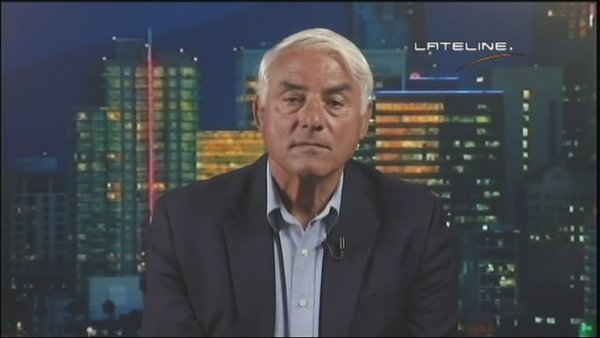
Dr. Allen Frances (Former Chair of the DSM-IV Task Force)
Dr. Allen Frances, who supervised the fourth edition of the American Diagnostic and Statistical Manual of mental disorders (DSM 4), says the later edition turns normal behaviour into mental illness. He is author of Saving Normal: An Insider's Revolt Against Out-of-Control Psychiatric Diagnosis, DSM-5, Big Pharma, and the Medicalization of Ordinary Life (New York: William Morrow; 2013) and Essentials of Psychiatric Diagnosis (New York: Guilford Press; 2013). See information and interview.
Over diagnosing paves the way for drug sales. Ever notice how everything has supposedly become a so-called ‘Disorder?’
The word ‘disorder’ is often misleading, and is overly used to justify the prescribing of ‘dangerous’ drugs; when in fact, in most cases, some anxiety and stress is a completely ‘normal’ reaction to certain life situations and can be managed in practical, non-harmful ways. The same can be said for other so-called behavioral issues.
Are many of the 'disorders' we see in society today, not disorders of the medical systems themselves?
Top of Page
Victims of psychiatric drugs were asked: "What are the most disturbing thoughts or urges you've had while withdrawing from psychiatric drugs?" These are there answers...
Top of Page
"There is an epidemic in the making"
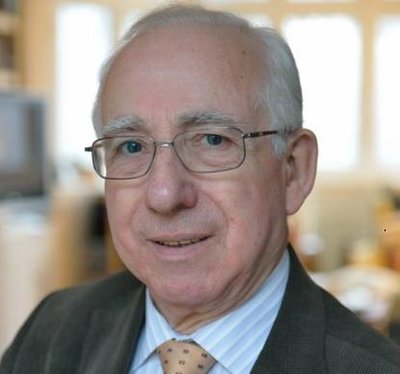
Professor Malcolm Lader: Emeritus Professor of Clinical Psychopharmacology, Institute of Psychiatry, University of London, England, Adviser to the World Health Organisation on drugs used in psychiatry (Ran a Benzodiazepine Withdrawal Clinic in London and has published more than 100 papers on the subject of benzodiazepines).
Experts say, compared to other addictive drugs, benzodiazepines are some of the most difficult to withdrawal from.
“It's more difficult to withdraw people from benzodiazepines than it is from heroin – it just seems that the dependence is so ingrained and the withdrawal symptoms you get are so intolerable that people have a great deal of problem coming off. The other aspect is that with heroin usually the withdrawal is over within a week or so. With benzodiazepines a proportion of patients go on to long-term withdrawal and they have very unpleasant symptoms for month after month and I get letters from people saying that it can go on for 2 years or more. Some of the tranquilliser groups can document people who still have symptoms 10 years after stopping.” (Source: Professor Malcolm Lader, BBC Radio 4, Face the Facts, broadcast on March 16, 1999)
In 1978, Prof. Lader called these drugs "the opium of the masses" because of the very high prescribing rates. In 1981 he warned that in the context of tranquilliser dependency "there is an epidemic in the making" and in 1988 he stated that this was the biggest medically-induced problem of the late 20th Century (Source: http://www.benzo.org.uk/lader2.htm).
And guess what? Nothing's changed...See "Who's Responsible?" below.
Top of Page

Despite decades of repetitive warnings from experts, masses of published literature, lobbying at government levels, and information available over the internet etc. regarding the known dangers of prescription benzodiazepines, and other drugs (psychotropics), the prescribing trends continue seemingly unfazed. Why is that? Who’s responsible?
As shown in the video clip about babies above, the reporter and so many others (who haven’t been burnt themselves) are quick to blame the person being prescribed the drugs. However, as highlighted by Prof. Ashton in a video clip, the problems often go a lot further back than this.
Top of Page
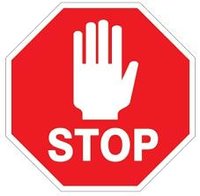
In much of the media (even in the video above) many narrators tend to use the unfortunate words “abuse”, “misuse”, “addicts” etc. when referring to patients or individuals.
Without being put into proper context, these types of words are stigmatizing many innocent people (otherwise normal everyday people) who were simply following their doctor’s orders.
Many of these people are suffering beyond all realms of imagination through no fault of their own. They need support, not stigmatization!
Stigmatization is driving the problem underground creating the perfect environment for maintaining drug sales but this causing every one of us in society a great deal of damage; either directly or indirectly.
It is interesting to note that many of the genuine drug “abuse / misuse” cases that do exist in our society have sometimes been precipitated by habit forming prescription drugs (sometimes from adolescence) which can form a gateway to so-called “abuse / misuse" along with the associated crime etc.
In either case, there is a lot to answer for. Is much of the “abuse / misuse” we see today not arising from the over medicalization of society?
Top of Page
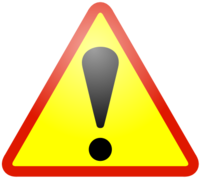
No doubt, everyone has heard the expression “They always get away with it” (look no further than Justice or Not? in my case). Unfortunately, it’s because of this tendency, together with a lack of information and knowledge, that the problem continues unaddressed leaving others go on and suffer the same fate.
Therefore, it is important to share information and enable people to become more vigilant and cautious resulting in better prevention and hopefully less cases of addiction / dependency and associated suffering / damages occurring.
Top of Page
Not Just Benzos...
Although my case and this website focus on benzodiazepines, there is also a great deal of other psychotropic drugs (e.g. antidepressants, antipsychotics, opiates for pain etc) being mindlessly overprescribed to people from all walks of life including children, the elderly, disaster victims etc. which is seriously affecting all corners of society.
WARNING
- Any information given on this site should not be substituted for the advice of a physician who is well-informed about benzodiazepine dependency and withdrawal.
- All information given here is therefore to be followed at your own risk (See Disclaimer).
- Abrupt cessation of benzodiazepines may be very dangerous. Always consult your prescriber if you are considering making any changes.

This website has been constructed by me personally for the purpose of raising awareness about doctor induced benzodiazepine drug dependency and litigation problems.
The purpose of this site does not include any form of retribution. Also, for privacy reasons the defendants’ names along with certain other names have been omitted from all public documentation contained herein.
There are no other persons / parties involved and it in no way represents any organization or activist type movements.
It is not intended as medical or legal advice – please see Disclaimer.

The primary language of this website is English. Japanese appears as translations only (except for some original court documents).
These translations have been done by many different translators including me. Therefore, there are differences in quality and styles.
Please understand that I am not native Japanese and subsequently there are parts that may sound unnatural in Japanese.
The Ashton Manual contains expert advice on benzodiazepines and how to withdrawal written by world renowned expert Prof. Heather Ashton.

The withdrawal schedules provided in the manual are only intended as "general guides". Each person's experience of withdrawal is unique and the course of withdrawal depends on many factors.
Don’t think benzos are dependence forming on prescription doses?
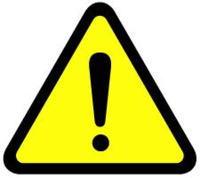
Think again!
“Tolerance and dependence can develop if benzodiazepines are used regularly for longer than 2-4 weeks. There is no minimum dose, for example tolerance and dependence have been observed after the regular use of 2.5-5mg of diazepam.”
Professor Heather Ashton: Emeritus Professor of Clinical Psychopharmacology, University of Newcastle upon Tyne, England
THE WRITING IS
ON THE WALL
for benzodiazepine use

Dr Andrew Byrne
Redfern NSW Australia
Benzodiazepine Dependence, 1997
“If any drug over time is going to just rob you of your identity [leading to] long, long term disaster, it has to be benzodiazepines.”

Dr John Marsden,
Institute of Psychiatry, London
November 1, 2007
“The benzodiazepines are probably the most addictive drugs ever created and the vast army of enthusiastic doctors who prescribed these drugs by the tonne have created the world's largest drug addiction problem.”

The Drugs Myth, 1992
“If there's a pill, then pharmaceutical companies will find a disease for it.”

Jeremy Laurance,
The Independent, April 17, 2002.
“To rely on the drug companies for unbiased evaluations of their products makes about as much sense as relying on beer companies to teach us about alcoholism.”

Marcia Angell MD
(Former) Executive Editor New England Journal of Medicine
“It is more difficult to withdraw people from benzodiazepines than it is from heroin.”

Professor Malcolm H Lader
Institute of Psychiatry London
BBC Radio 4, Face The Facts
March 16, 1999
“Withdrawal symptoms can last months or years in 15% of long-term users. In some people, chronic use has resulted in long-term, possibly permanent disability.”

Professor C Heather Ashton
DM, FRCP,
Good Housekeeping, 2003
“Clearly, the aim of all involved in this sorry affair is the provision of justice for the victims of tranquillisers.”

“Benzos are responsible for more pain, unhappiness and damage than anything else in our society.”

Phil Woolas MP,
Deputy Leader of the House of Commons,
Oldham Chronicle, February 12, 2004
(Partial Reference: benzo.org.uk)
Journalists have regularly exposed the Benzodiazepine Scandal with stories of celebrity deaths attributed to benzo use as well as the blighted lives of ordinary people.
Benzodiazepines were, by all accounts, implicated in the deaths of:
- Elvis Presley
- Paula Yates
- Michael Jackson
- Heath Ledger
- Brittany Murphy
- Amy Winehouse
- DJ AM (a.k.a. Adam Goldstein)
- Anna Nicole Smith
- Margaux Hemingway
- Don Simpson
- David Foster Wallace
- Whitney Houston

I Will Always Love You
How anti-anxiety meds are killing celebrities
It used to be that hard drugs were the cause of celebrity overdoses…Of the celebrities who have overdosed on drugs in the past five years, eight appear to have taken prescription medications — specifically, a mix involving easily accessible anti-anxiety medications known as benzodiazepines or “benzos.”
I included the quote in the top left corner of this site because many people thought I was crazy for pursuing my case.

However, my philosophy is we can either choose to do something, or choose to do nothing. The former gives way to hope for many people. The latter…? Whichever way, it’s all in our hands…
Seems people are all saying the same things over and over…

- I was like a zombie
- It felt like I was in hell
- It was much harder to come off benzodiazepines than anything else I'd ever had before
- It took a chunk of my life away
- It has destroyed my life
- The doctor never told me they were addictive / The doctor told me they weren’t addictive
- When I complained my condition was worsening the doctor prescribed me more...
What are benzos for again?
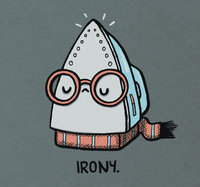
The only time I’ve ever needed to visit a psychologist in my life was AFTER (wrongfully) being prescribed benzodiazepines…
As someone who has experienced both doctor induced benzo dependency and the effects of the 3-11 disaster, I immediately became concerned about the overprescribing of prescription drugs to the many thousands of people in the disaster areas.
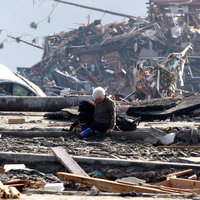
As it happened, I was writing my Supreme Court appeal in the midst of the disaster, so I took this opportunity to try and raise the alarm by including the following passage in my closing comments…
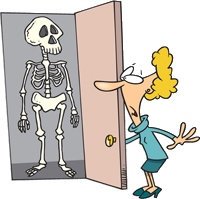
It seems the truths about the potential dangers of benzodiazepines are slowly coming out but with so many cases of prescription dependency worldwide there is clearly a long way to go.
Also, in my experience it appears as if dependency to prescription drugs leans toward a subject of taboo – almost as if society is succumbing to it.
However, is keeping these problems locked up in the closet going to help anyone or change anything?
At first it was difficult sharing my case and story online because it necessitated disclosing personal information, however, I felt the need to come out and help raise awareness outweighed this…
Cause for Alarm!

Consider this extract from:
A Review of David Healy's “The Psycho-pharmacologists III” by Professor Heather Ashton
How is it that the pharmaceutical industry has come to dominate the field?
Healy points out that drug companies “are now not simply confined to finding drugs for diseases. They have the power to all but find diseases to suit the drugs they have”.
Pierre Simon (Sanofi Pharmaceuticals) remarks: “In the beginning the pharmaceutical industry was run by chemists.
This was not so bad... Now most of them are run by people with MBAs... people who could be the chief executive of Renault, Volvo or anything.
They don't know anything about drugs.” The problem comes when a chemist presents an interesting drug to the financial analyst, who asks: “What is the market?”
The chemist has to decide for what indication the drug will be developed. If the indication is not there, it must be created.
Most surprising of all, the high court relied on the packaging produced by the pharmaceutical company to determine the dosage at which benzodiazepines could be deemed addictive.

“I don't feel like I lost, I feel like I won and the court failed,” he says. “It feels like they were protecting the doctors and failed to protect society.” "What I want to do is use my experience and the material generated through my case to provide a resource to others who are dependent or may become dependent."

This section focuses on some of the apparent injustices of the Japanese courts in my case. To help highlight these, some parts of this section include cross-referencing between the High Court Verdict and the Dependency Reports which were all based on the official evidence and the DSM-IV-TR diagnostic criteria for dependency.
This page has been set up to give readers the opportunity to share their comments.

If you wish to send a message of your own please do so by sending an email through the contact page.
Alternatively, you can use the Benzo Case Japan facebook page.
“Benzodiazepine addiction is a terrible affliction; these people are not drug addicts but they have become hooked on repeat prescriptions of tranquillisers.”

PM David Cameron
October 23, 2013
Stevie Nicks: Tell me Lies
Doctor: Benzodiazepines will help to calm you down and keep you from going back to coke…

"Singer Stevie Nicks has publicized the dangers of Klonopin (benzodiazepine) by describing her own detox from the prescription drug as "hellish" and worse than withdrawing from cocaine or heroin.
"Klonopin turned me into a zombie,” she told US Weekly in 2001.

Each one of us has a different experience of withdrawal.
The duration and degree of intensity can vary depending on the individual and there are many reasons for this.
Did You Know?
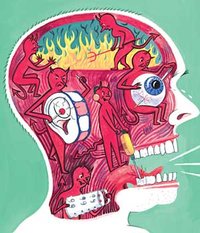
Tolerance doesn’t always develop across all symptoms.
For example, someone might develop tolerance to the hypnotic (promotion of sleep) effects but not to the anxiolytic (anxiety relief) effects, or they might develop tolerance to some symptoms of anxiety and not others. Tolerance to the various actions of benzodiazepines develops at variable rates and to different degrees (See The Ashton Manual).
It was difficult to get any relief from the ongoing symptoms
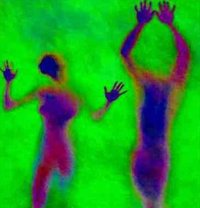
Unlike injuries where you may get some relief from adjusting your posture etc, with drug dependency in my case, the pain was both mental and physical and ran 24/7 regardless…
The informed consent argument formed an integral part of the case because it was needed to prove negligence.

Without negligence there would have been no accountability, and therefore, no case from the outset.
In section 4 of his fourth report, Addictive Medicine Specialist, Dr. Graeme Judson explained the principles of prescribing and informed consent in relation to my case and sample applied.
The monitoring argument also formed an integral part of the case because it too was needed to prove negligence.

As above, without negligence there would have been no accountability, and therefore, no case from the outset.
As with informed consent, in section 4 of his fourth report, Addictive Medicine Specialist, Dr. Graeme Judson explained the principles of prescribing and monitoring in relation to my case and sample applied.

Ever wonder why the diazepam conversion rates differ from source to source?
Addictive Medicine Specialist, Dr. Graeme Judson explains as follows:
“The rate used for converting Diazepam equivalents tends to differ from source to source. This is because individual variation in clinical responses to “equivalent” doses can vary so close monitoring of patient response to substitution is necessary when converting from one Benzodiazepine to another.”
I first became acquainted with Prof. Ashton when my lawyer and I were desperately seeking literature stating that a patient can experience withdrawal symptoms even while still taking the drugs.
She subsequently provided this key information and later other useful information as well.

We maintained close contact ever since; making efforts to raise awareness about this massive social problem.
This work included the translation of The Ashton Manual in Japanese.
This section shows a variety of other benzodiazepine related videos that may be of interest.

The amount of actual loss and damages in my case can be seen in the Official Loss and Damage Forms which are registered with the courts.

My Official Court Statement 2 may help give an idea of the nature of some of these damages.
There were many challenges in my case.

These included fighting a world famous doctor in another country and language, acting as go-between for a harsh natured Japanese speaking lawyer and a sensitive natured English speaking doctor, making my Supreme Court Appeal whilst evacuating from Fukushima etc during the 3/11 disaster etc…
For many months and years I had to endure the effects and suffering of a horrible benzodiazepine dependency.

During my quest to seek recognition for this, I thought the defendant hospital, doctor and courts had a lot of nerve to turn around and tell me that I wasn’t dependent (despite having attended a drug rehabilitation program with follow-up consultations lasting more than a year)...

Some parts of this website still have not been translated into Japanese. If anyone (native Japanese) would like to help on a volunteer basis, please contact mentioning the part you would like to translate. Thank you.



